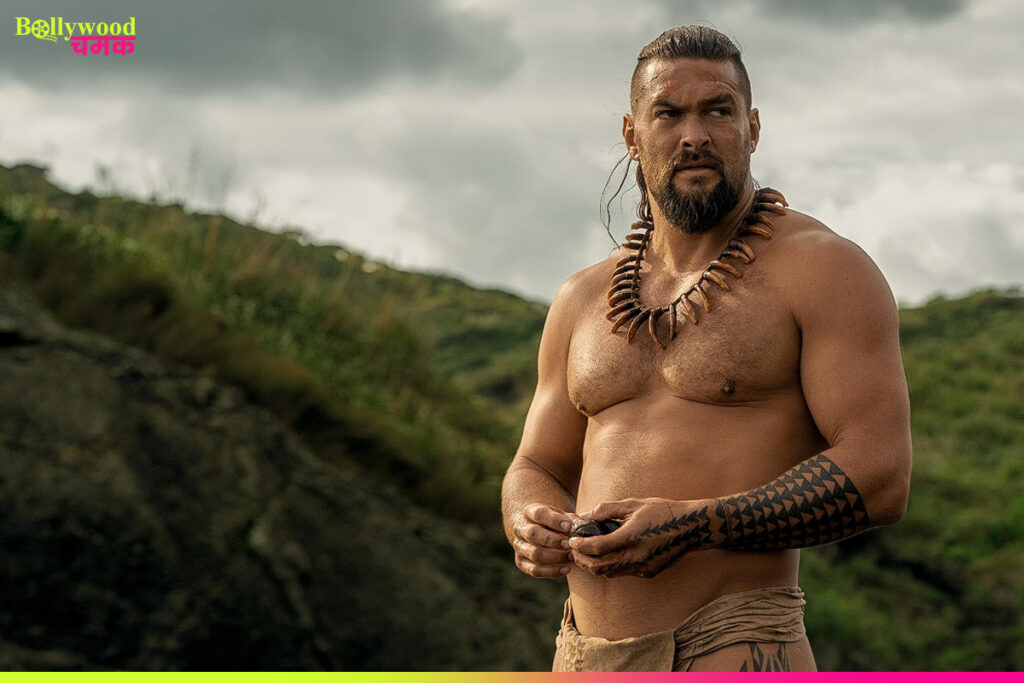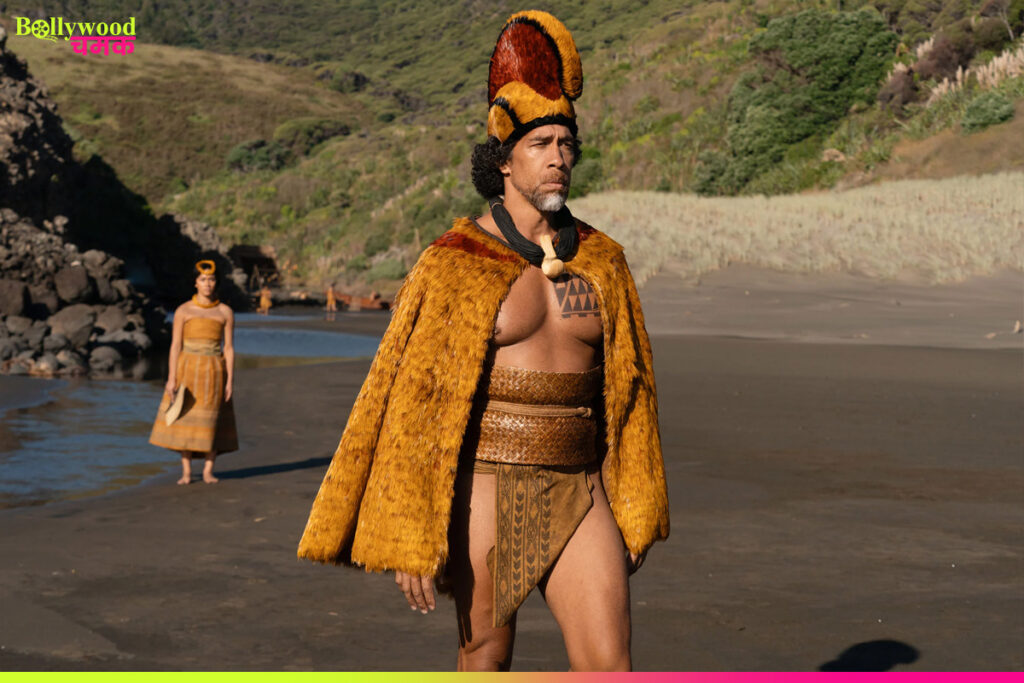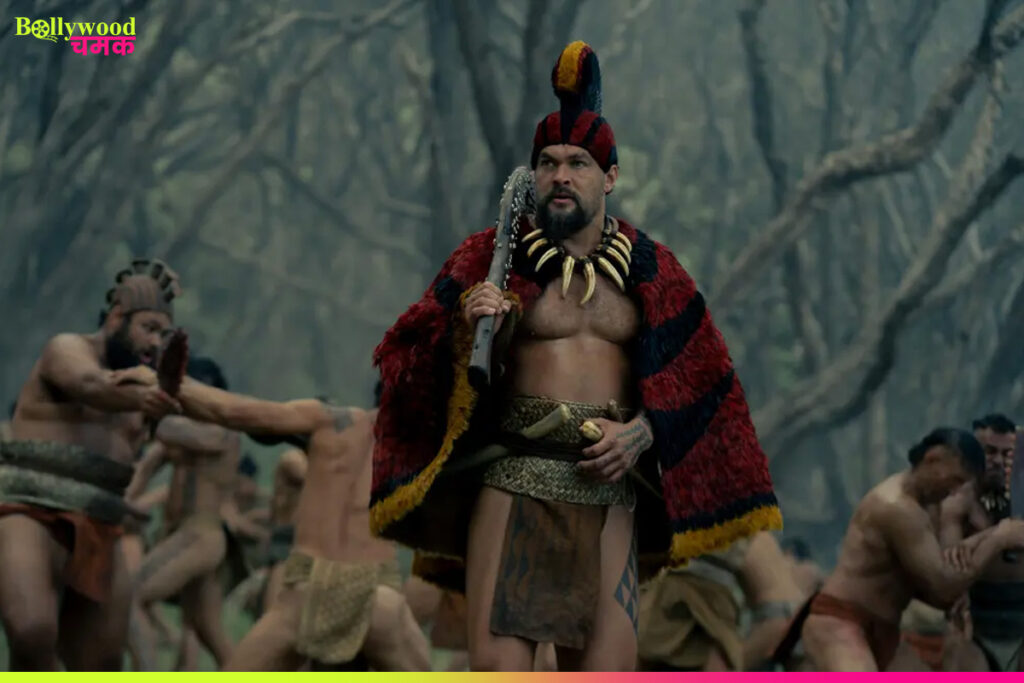Jason Momoa’s latest series, Chief of War, is a visual masterpiece and a bold storytelling experiment that blends raw cultural heritage with modern cinematic ambition. Airing exclusively on Apple TV+, this historical epic dives deep into the rich but often overlooked history of the Hawaiian islands, telling a politically charged and emotionally resonant tale through the eyes of a Polynesian warrior. Think of Avatar’s cultural reverence combined with Black Panther’s defiant pride — that’s the level of cinematic language Chief of War speaks.
Set in the late 18th century, Chief of War isn’t just a drama — it’s a cultural reclamation project, a tribute to heritage, and a gripping political saga all in one. And at the heart of it all is Momoa, not just as the leading man, but also as the show’s co-creator, co-writer, and passionate driving force.
A Story Rooted in Heritage: The Unification of Hawaii
At its core, Chief of War revolves around the tumultuous period of the unification of the Hawaiian islands. Rather than retelling the story from the perspective of Western explorers or colonists — as often seen in mainstream media — the show offers a deeply indigenous perspective, grounded in local history, customs, and language.
The series follows Ka’iana, a Polynesian warrior of noble descent, portrayed by Momoa himself. Once a loyal soldier, Ka’iana walks away from his king and seeks refuge with his brothers in a different region. However, the relative peace of his exile is interrupted when he unintentionally boards a ship headed for the Western world. This journey becomes his first encounter with European civilization — and its many flaws.
Ka’iana’s time in the West exposes him to new weapons, technology, and political strategies, but also to the moral corruption and colonial ambitions of white settlers. Upon his return to Hawaii, thought to be dead by his family and community, Ka’iana brings back not only knowledge but a mission — to protect his people with the very tools of those who would seek to conquer them.
A Narrative Told in Native Tongue
One of the boldest and most authentic creative decisions in Chief of War is its use of the native Hawaiian language. In an era where language is a powerful symbol of identity, using the indigenous dialect throughout most of the show is a strong cultural statement. This creative move mirrors the confidence shown by other acclaimed series like FX’s Shōgun (in Japanese) and Apple’s Pachinko (in Korean), both of which proved that global audiences are more than ready for non-English narratives — if the story is strong.
Not only does this add to the emotional authenticity of the series, but it also shows respect to the Hawaiian people, language, and legacy. Momoa and his co-creator Thomas Pa’a Sibbett clearly went the extra mile to ensure historical accuracy, reportedly involving local communities and cultural advisors during production.

Strong Characters and Even Stronger Performances
While the unification campaign of Kamehameha the Great serves as the backdrop of the series, the show stays grounded by focusing on Ka’iana’s journey. Momoa’s Ka’iana is no ordinary warrior — he is described as the “fist” to Kamehameha’s “head.” The contrast between these two characters reflects different approaches to leadership: strength and strategy, rebellion and diplomacy.
Ka’iana is rough-edged, brooding, and emotionally complex — a role tailor-made for Jason Momoa, whose natural charisma lights up every frame. Kamehameha, portrayed by Kaina Makua (a non-actor and real-life farmer), represents the quiet, righteous power of reluctant leadership. Together, they form an unlikely but essential alliance that drives the political narrative of the show.
Veteran actor Temuera Morrison (of The Mandalorian and Aquaman fame) plays the aging and ruthless Chief Kahekili with terrifying intensity. Meanwhile, Ka’ahumanu, a powerful female figure reminiscent of Daenerys Targaryen, is shown navigating the complex world of political marriages, alliances, and personal agency.
Perhaps one of the most unforgettable performances comes from Cliff Curtis, who plays an emotionally unhinged and power-hungry noble. His portrayal — at times uncomfortably raw and unpredictable — brings depth and tension to the narrative. A scene in which he punches himself in a frenzy, pulls out his own tooth, and stands by a volcano as a form of penance is both haunting and symbolic of his descent into madness.

Visually Staggering, Emotionally Grounded
If there’s one thing that defines Chief of War from the very first episode, it’s the breathtaking visuals. Shot predominantly on location in Hawaii, the show spares no expense in delivering wide panoramic shots of lush landscapes, volcanic terrain, and immersive set design. Even in moments where CGI is evident (a few green-screen-heavy sequences), the visuals remain striking.
The costume design, weapons, traditional tattoos, and ceremonial garments reflect extensive research and deep reverence for authenticity. According to reports, much of the crew included members of the Hawaiian community, ensuring that cultural representation wasn’t just performative but integral to the production.
Cultural Relevance and Universal Themes
Beyond its stunning visuals and gripping drama, Chief of War is a show about identity, legacy, love, betrayal, and the cost of power. These are universal themes that resonate across cultures, eras, and languages. By grounding these ideas in a historically specific but globally underrepresented context, the show achieves something rare — a culturally rich story that still feels universally compelling.
The show doesn’t shy away from addressing the colonial threat, internal power struggles, and the pressures of leadership. Nor does it simplify the moral complexities of war and political alliances. Instead, it embraces the nuanced gray areas, allowing characters to be flawed, conflicted, and deeply human.
Apple’s Growing Reputation for Prestige TV
With Chief of War, Apple TV+ adds another jewel to its crown of critically acclaimed series. In recent years, the platform has shown a clear commitment to high-quality, character-driven storytelling (Severance, Pachinko, Slow Horses, For All Mankind). Like HBO in its golden age, Apple seems to be shaping itself as the go-to place for rich narratives and bold creative voices.
Jason Momoa has described Chief of War as his passion project, and it shows. From co-writing the scripts to immersing himself in the Hawaiian language, his dedication is evident in every frame. In one interview, he joked that he had to wait for Minecraft to “save cinema” before he could get a project like this greenlit. Thankfully, the wait was worth it.

Final Verdict: A Must-Watch Historical Drama with a Heart
Chief of War isn’t just a show — it’s a cultural milestone. It rewrites the rules of mainstream historical storytelling by placing indigenous voices and perspectives at the center. With Jason Momoa leading the charge, the series proves that authentic representation, when paired with strong writing and world-class production, can captivate audiences worldwide.
Whether you’re a fan of political dramas, historical epics, or simply good storytelling, Chief of War deserves your time. It’s raw, real, visually sumptuous, and emotionally resonant — a true warrior’s tale for a modern audience.

